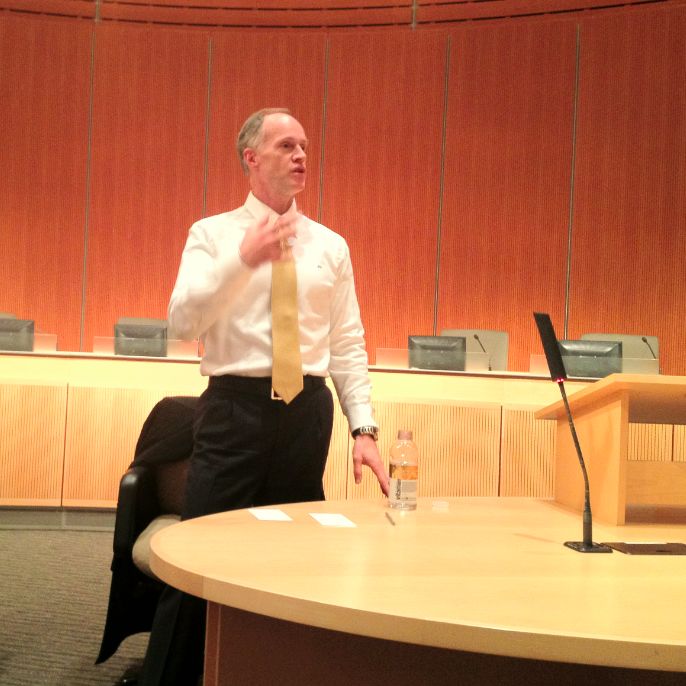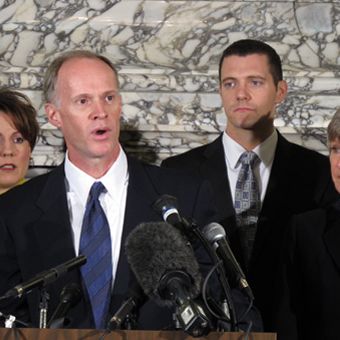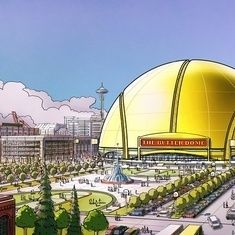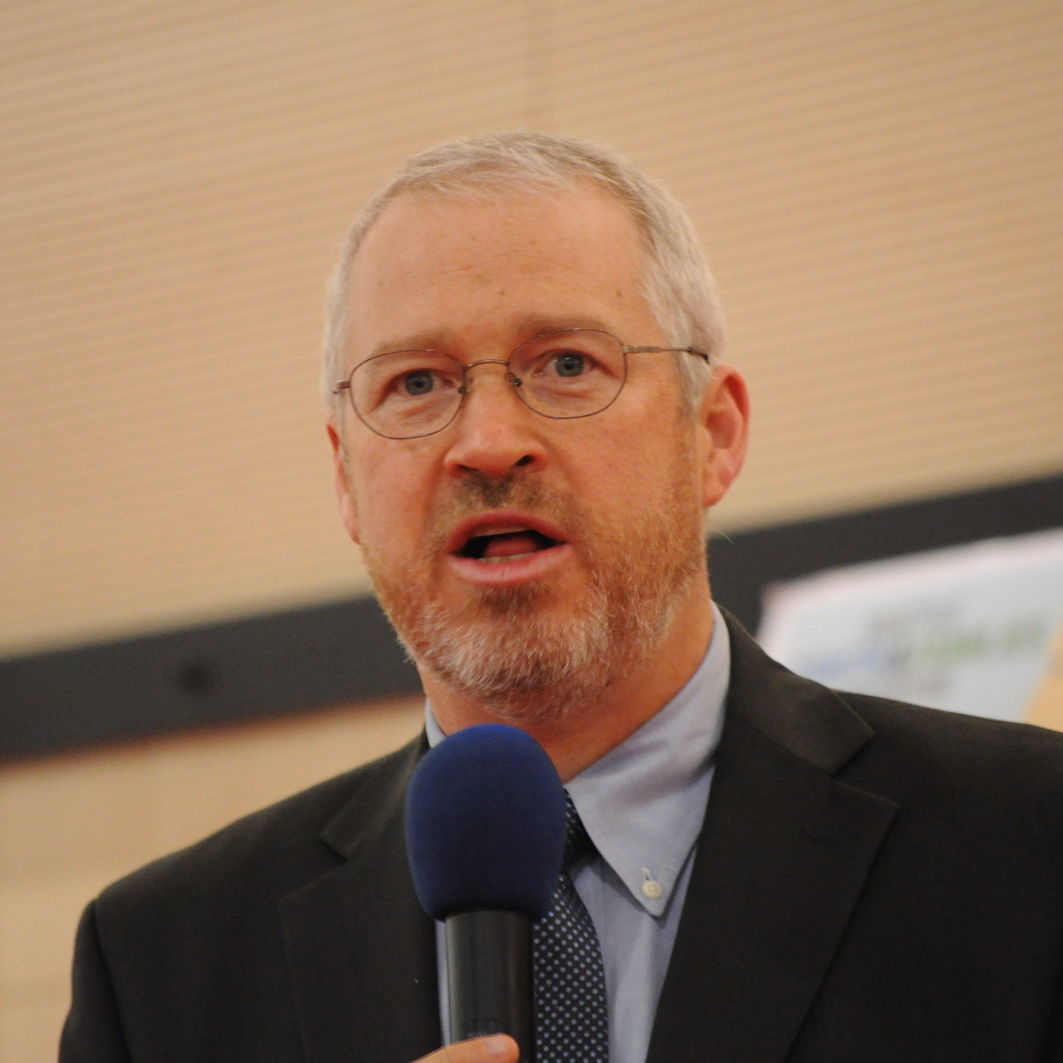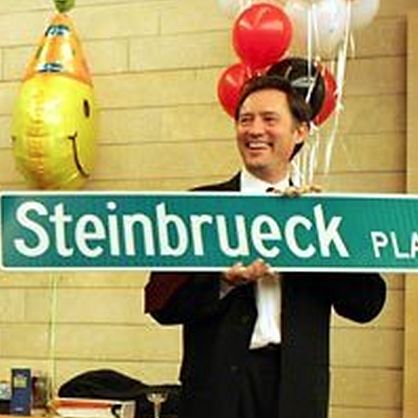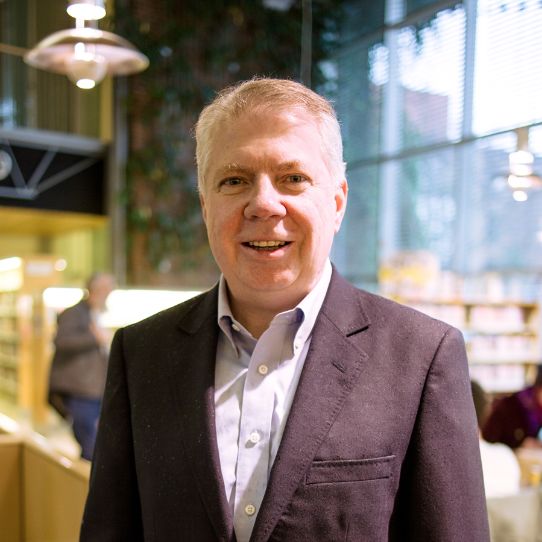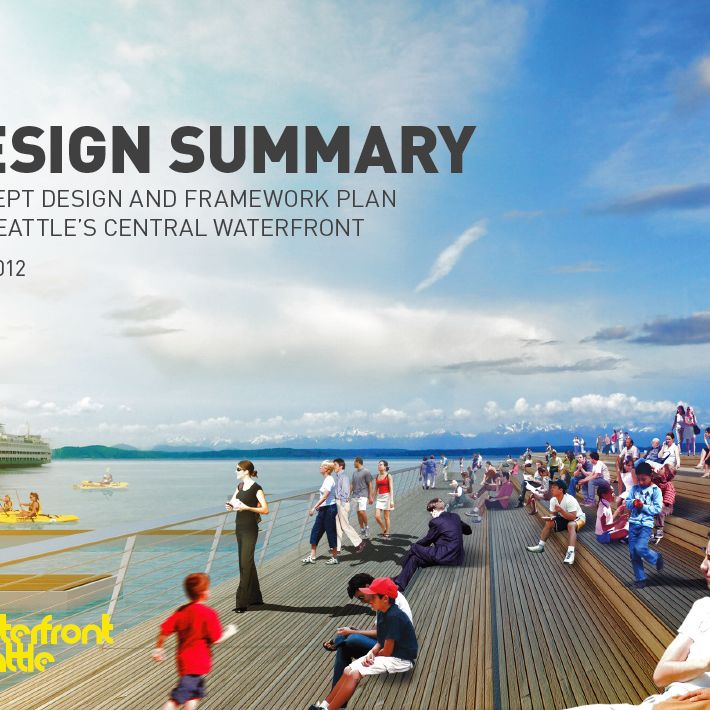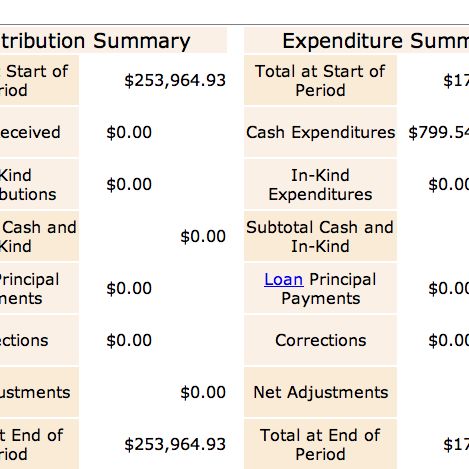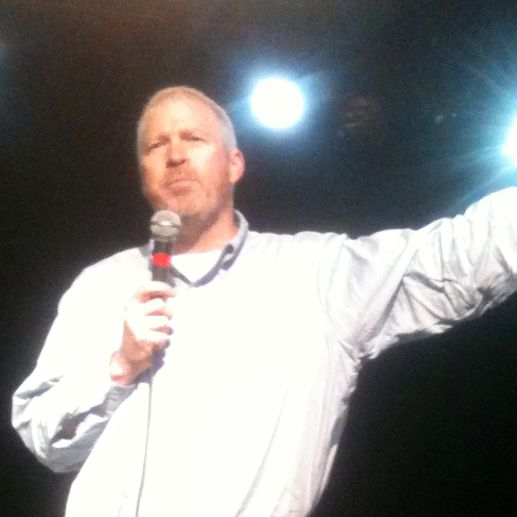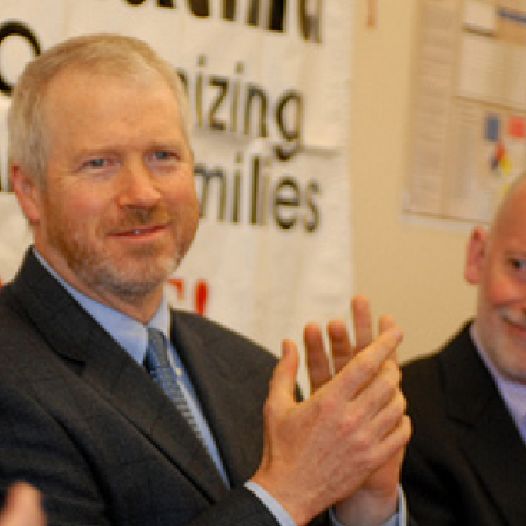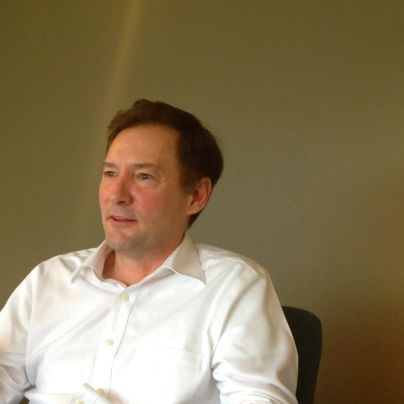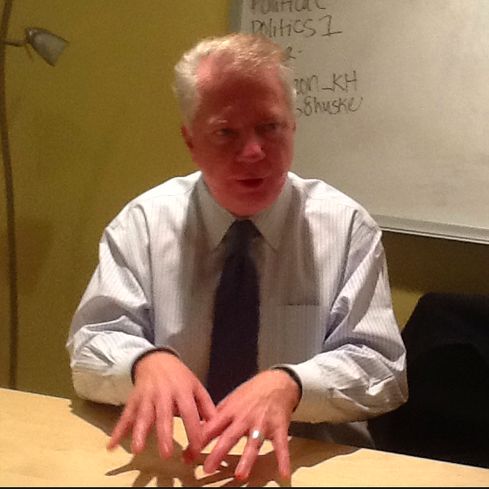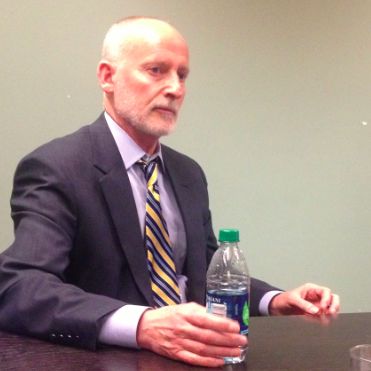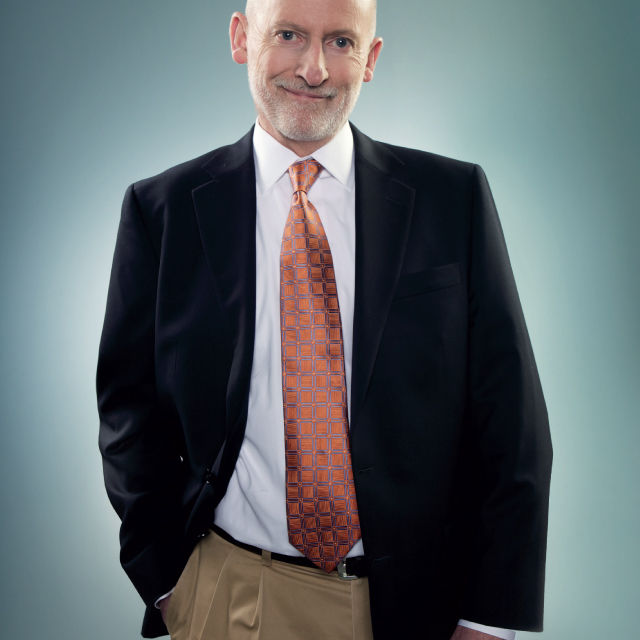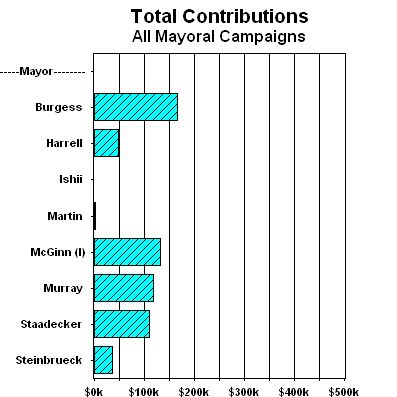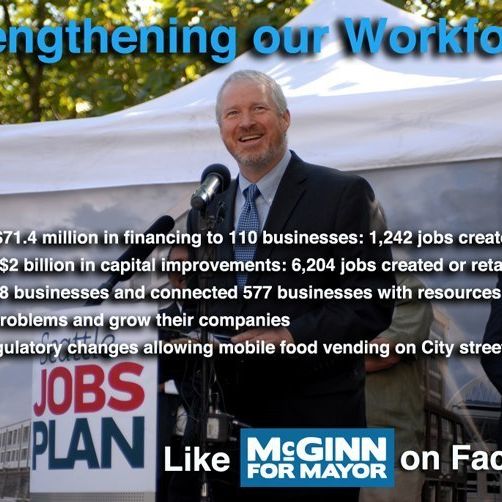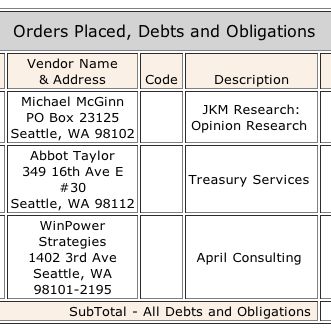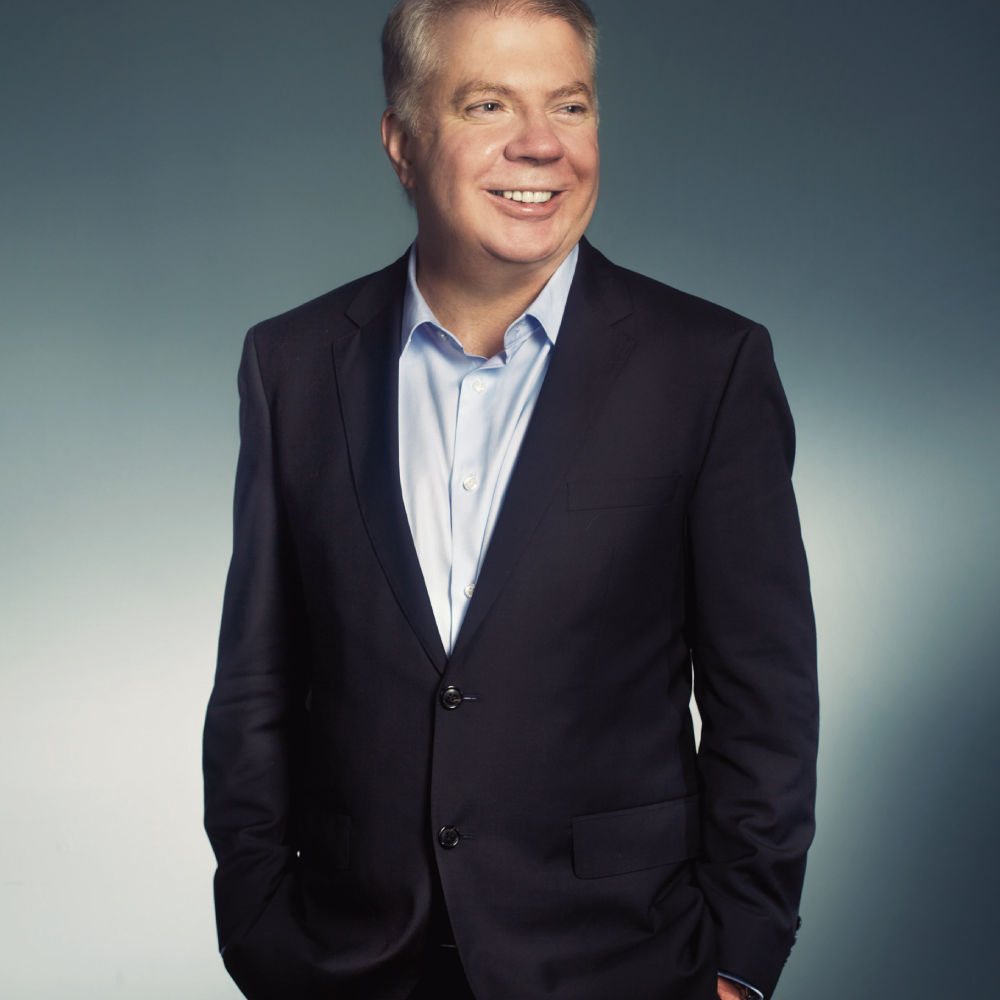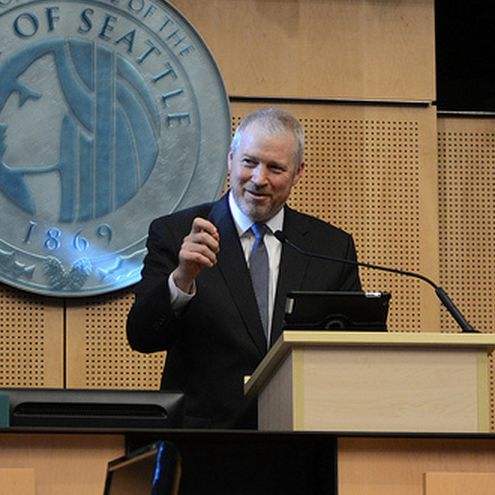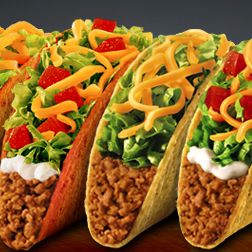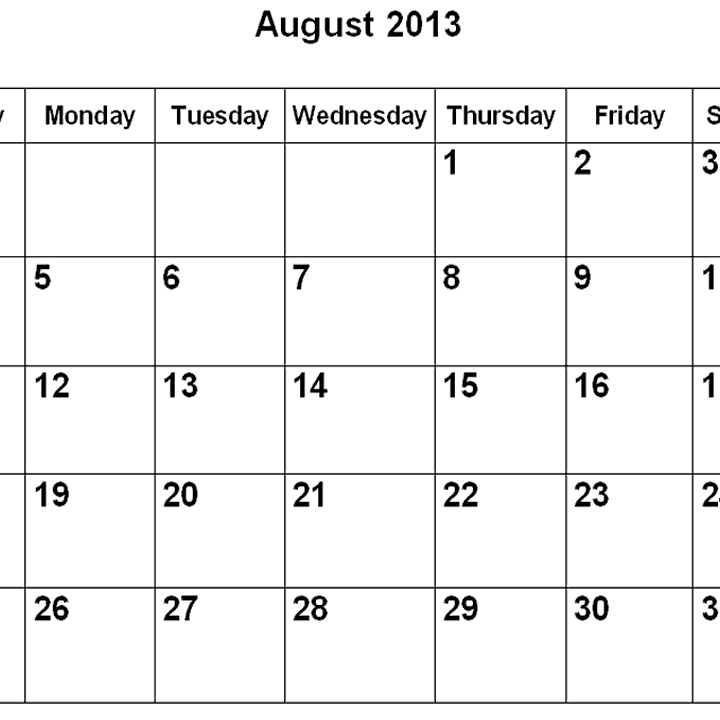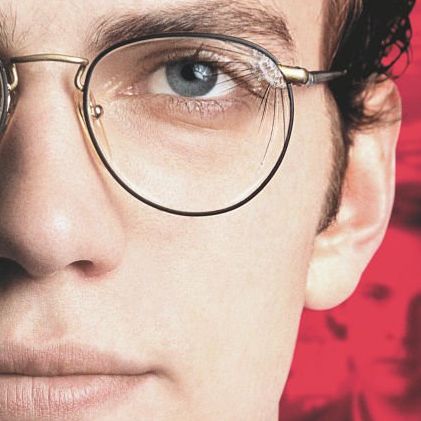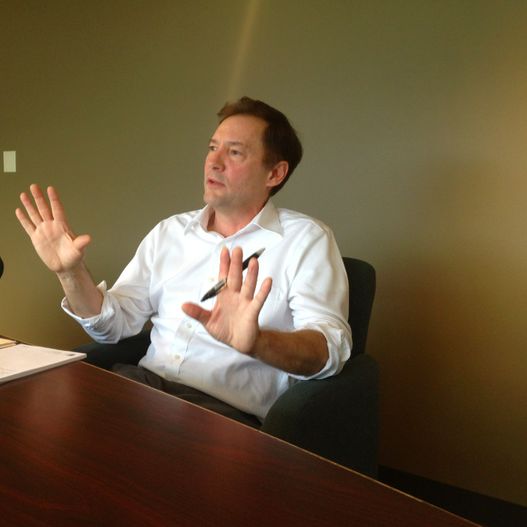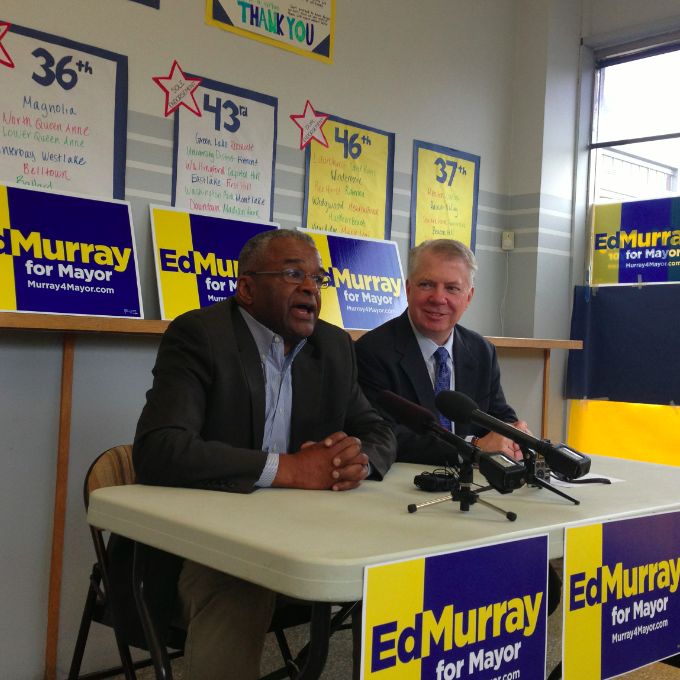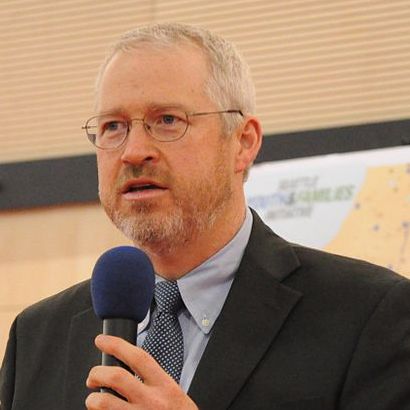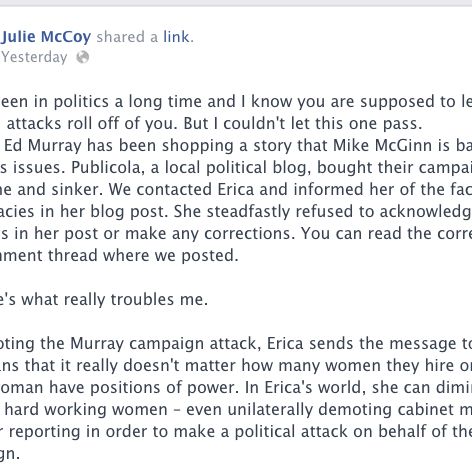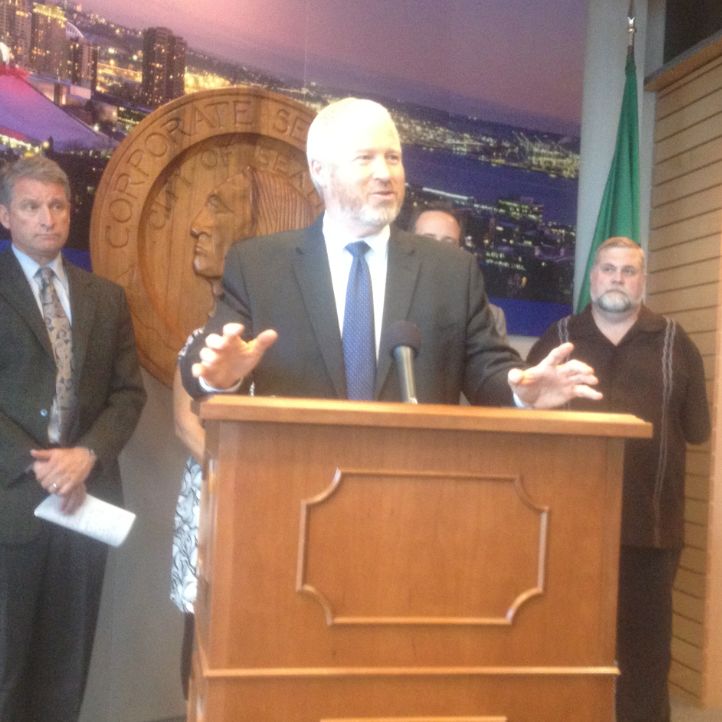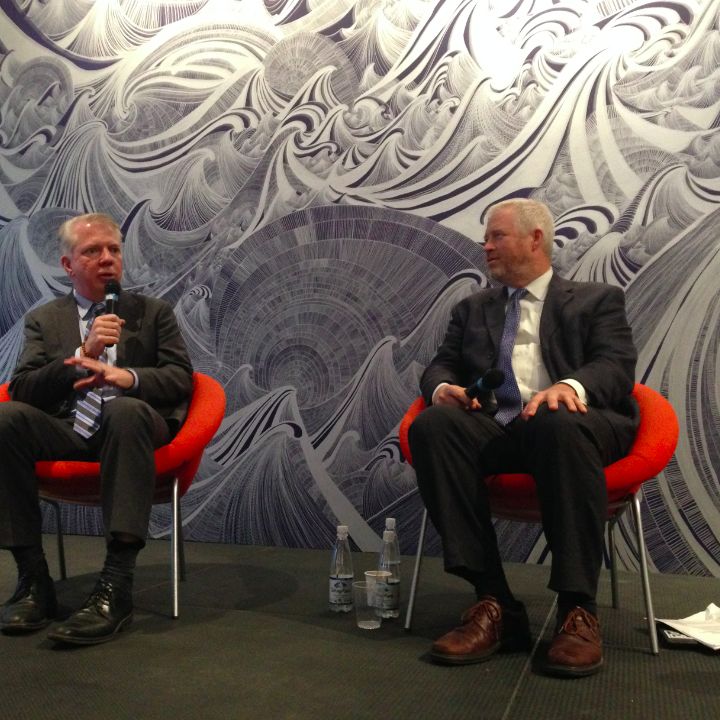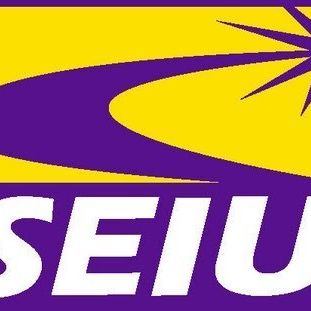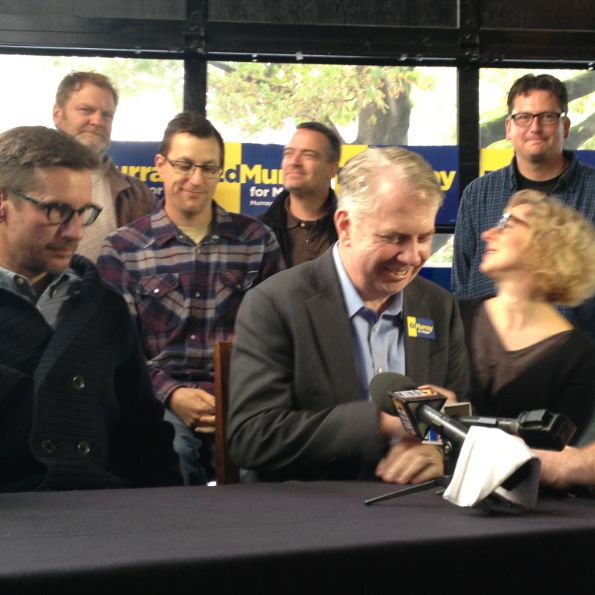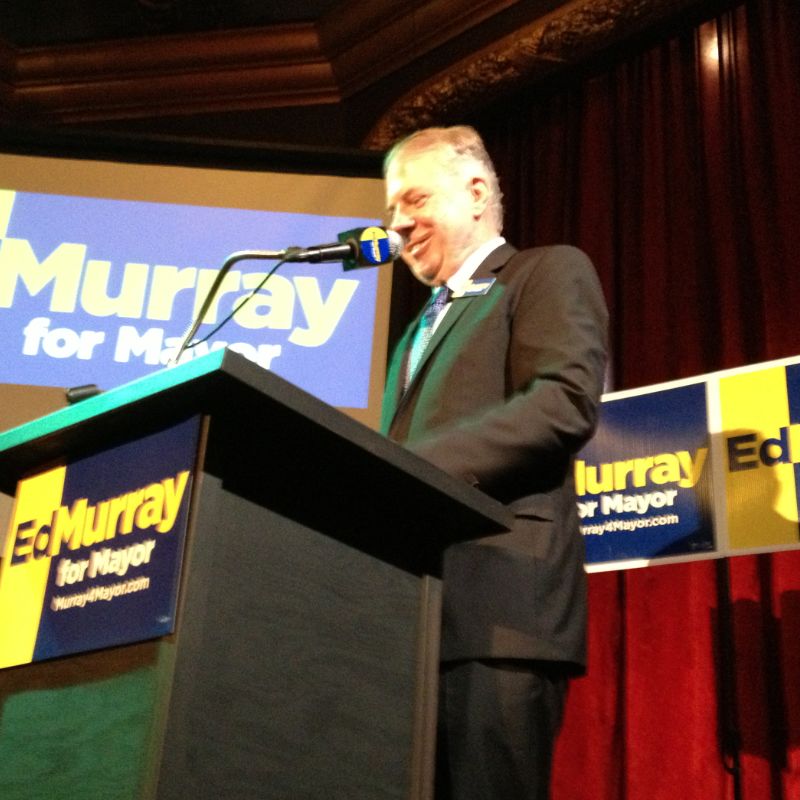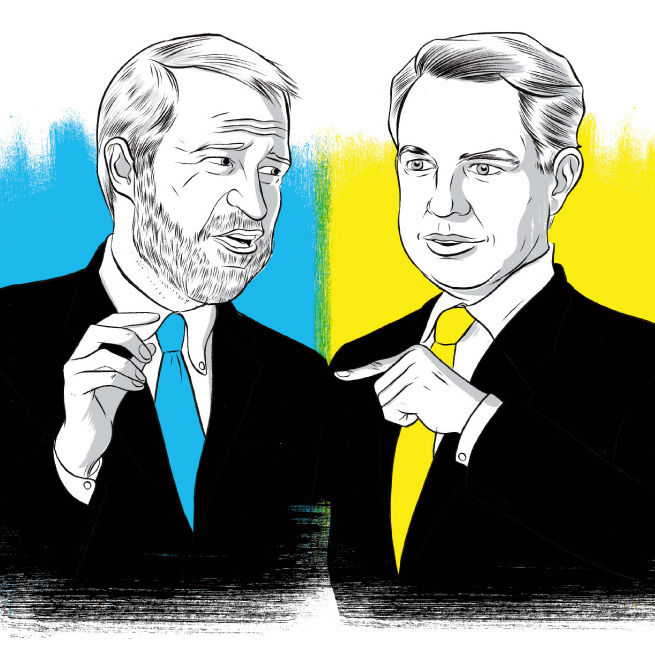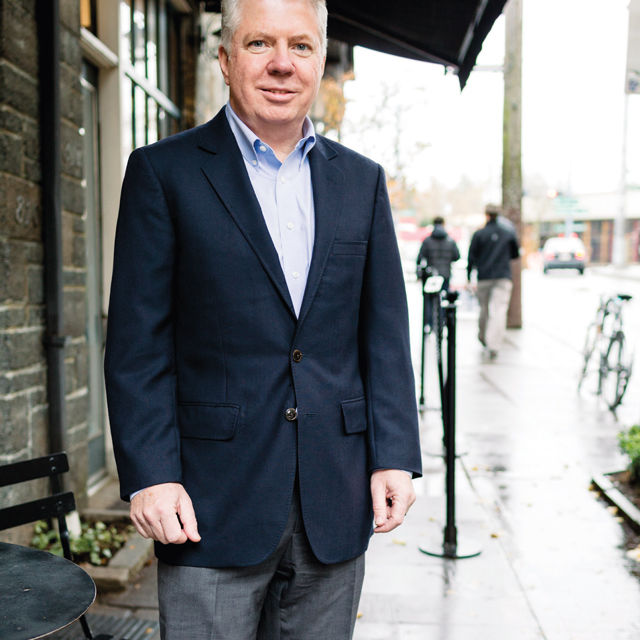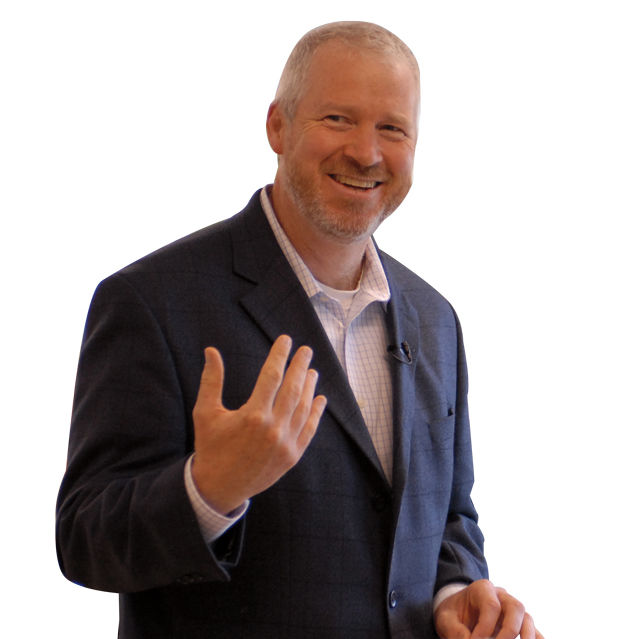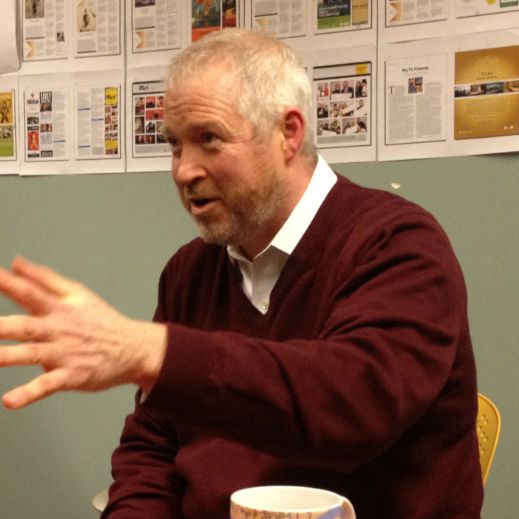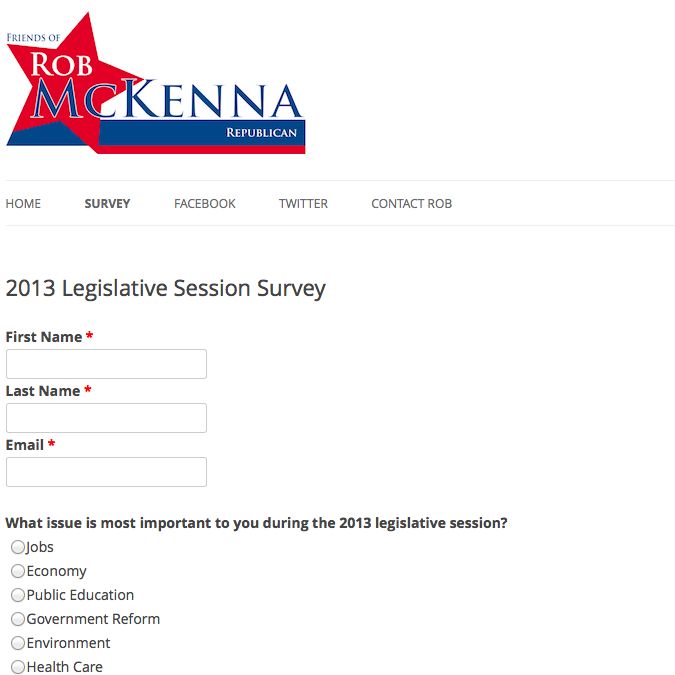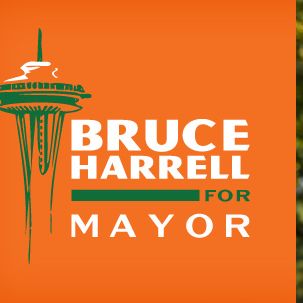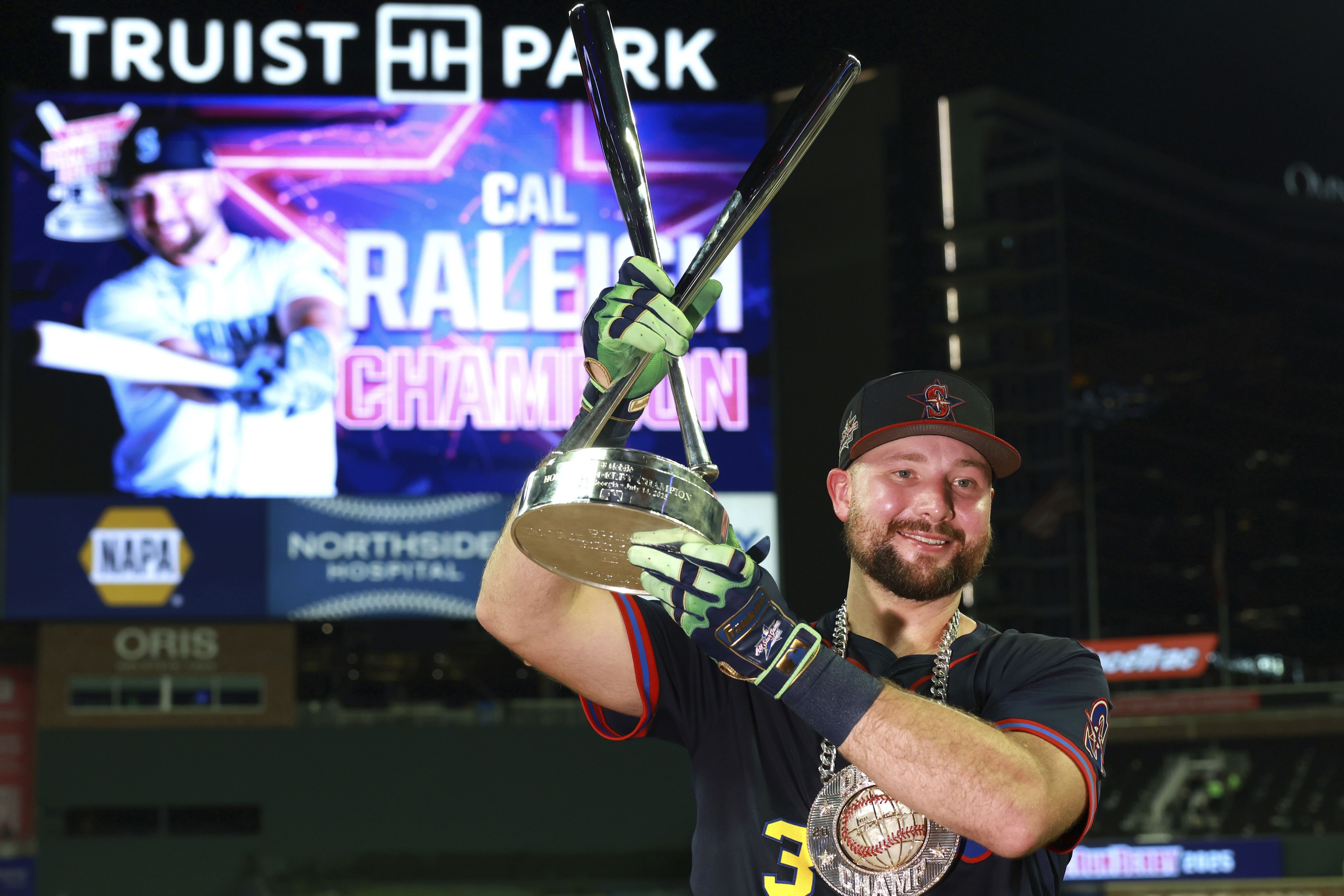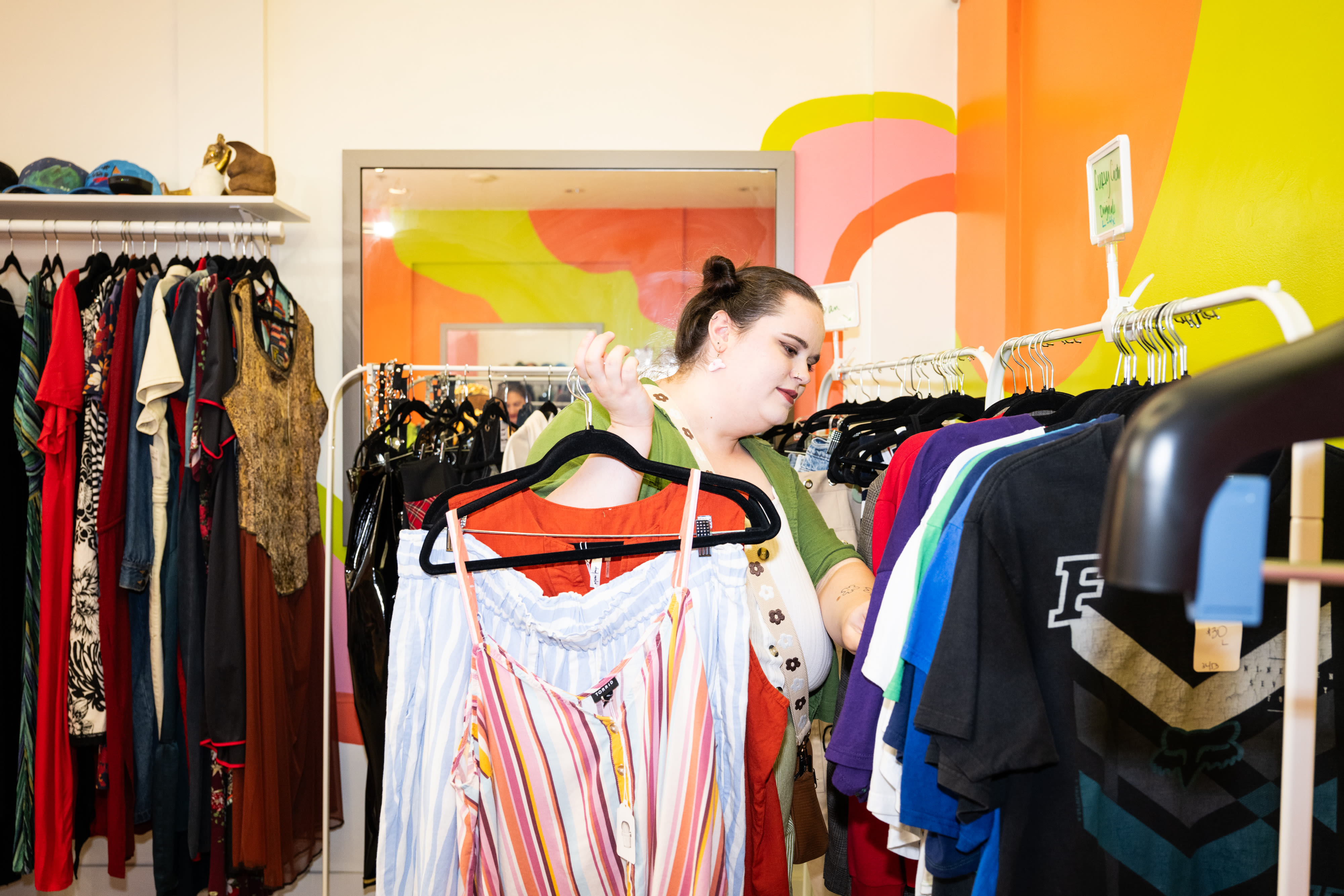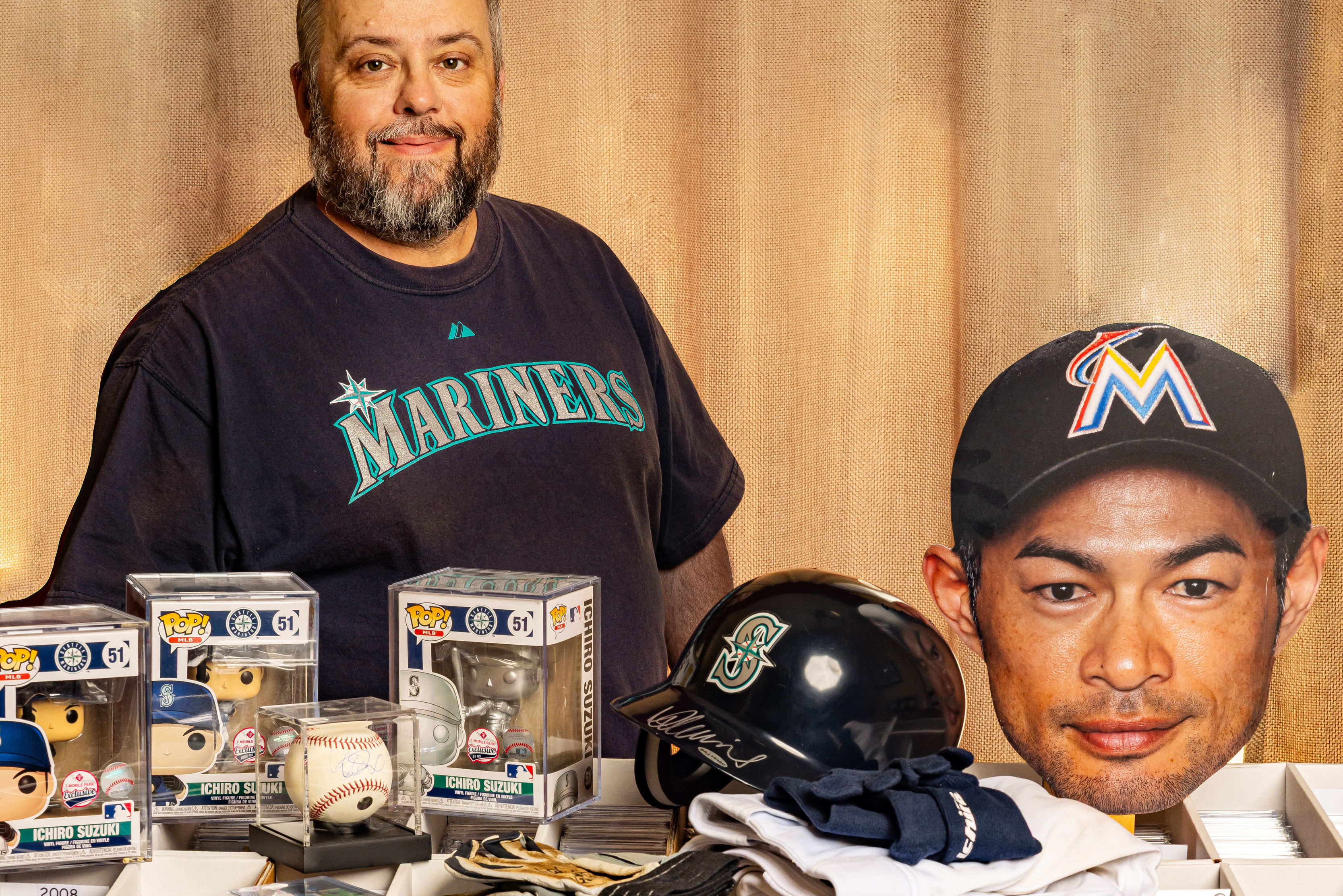A PubliCola Q&A With Mayoral Candidate Ed Murray
State Sen. Ed Murray (D-43, Capitol Hill) is best known for passing last year's historic gay marriage legislation, which capped his other gay rights victories—passing an anti-discrimination gay rights bill in 2006 and passing a series of domestic partnership bills between 2007 and 2009 in the runup to full marriage equality.
However, Murray, who's gay, is more of a Democratic policy nerd than a culture warrior.
He's been doing heavy legislative lifts in Olympia for a while. As transportation chair in the house, Murray brought together businesses and environmentalists and passed the only significant tax increases this state has seen in more than 20 years—gas taxes in 2003 and 2005 for transportation infrastructure.
Like the gay marriage bill, his 2005 gas tax was also seconded by voters after a backlash attempt by conservatives for a repeal at the ballot box. When he left the house and joined the senate in 2007, Murray took over as budget leader and won praise from moderates—for crafting a bipartisan budget deal in 2011—and from liberals, for outfoxing the Republican budget coup by restoring social service funding in 2012.
Murray was elected Democratic majority leader this year, but then the Republicans staged another coup, and he was relegated to playing defense when two renegade Democratic state senators, Rodney (D-48, Medina) and Tim Sheldon (D-35, Potlatch) joined with the Republicans to form the Majority Coalition Caucus. Murray's been making political stands—some quixotic, such as his capital gains tax proposal, his fight for the DREAM Act, and his advocacy for the Reproductive Parity Act—all session.
Seattle voters will be closely watching Murray's record after the session is over and the mayoral election is in full swing: Was his decision to work with the Republicans on this year's budget crafty or foolish? Murray brags about securing collective bargaining and family planning dollars, moving the goalposts so that the liberal house and governor can bargain for more. Critics say he's given the GOP the upper hand by letting them lay claim to a "bipartisan" budget deal.
Other things voters want to know about Murray: Does he have a vision for the city (and a firm grasp on local issues) or is he just a liberal state senator from the provincial (in its own way) urban 43rd District? And can he transcend his reputation as a hothead? (When we asked him about this late last year, Murray said that he, unlike current Mayor Mike McGinn, can "get in people's face and still be friends.")
Murray, who lives on North Capitol Hill with his longtime partner, Michael Shiosaki, came in third in a March KING 5 poll—highlighting the fact that while insiders are keen on Murray, he isn't well-known in the city at large.
Another outstanding question, though, appears to have been answered: Can Murray, who's barred from raising money while the legislature's in session, catch up with the other candidates? Reality check: The other candidates have spent the last couple of months catching up to him. Shortly after he declared, and before the session fundraising freeze kicked in—basically a week—Murray raised a whopping $123,000. Fundraising will not be a problem for the powerful state senator (who also has national cred for his leadership on gay rights).
We recently sat down with Murray.
Here are our interviews with some of McGinn's other mayoral opponents: Tim Burgess, Bruce Harrell, Peter Steinbrueck, and Mayor Mike McGinn himself (Part One and Part 2), as well as two excerpts from our interview with Murray that ran a few weeks back.
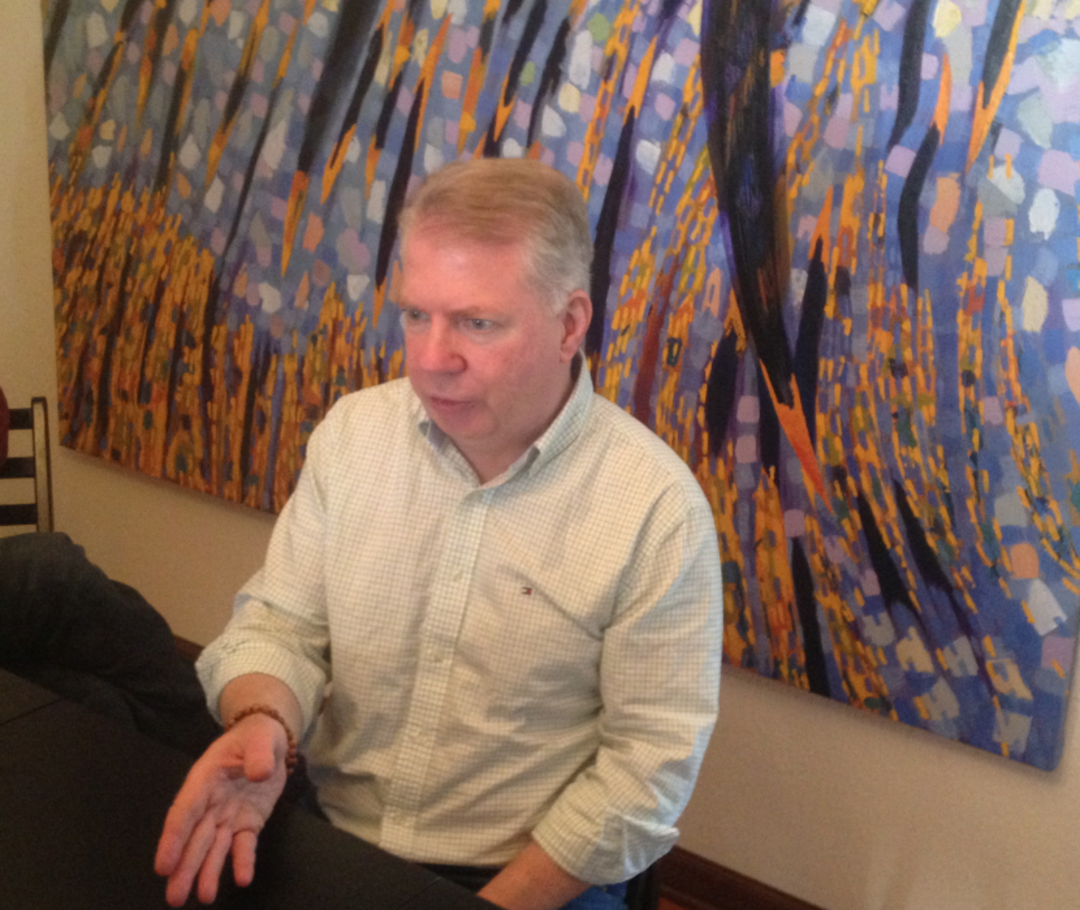
PubliCola: You’re probably best known as the guy who passed gay marriage. Tell us a little more about your own political trajectory. How do you explain to voters who Ed Murray is in a way that expands on your reputation as a gay-rights champion?
Ed Murray: I would point right to transportation, which is one of the number-one challenges the city faces. I became [house transportation] chair after Referendum 51 [a 2002 proposal to raise $8 billion for roads and transit] failed by 20 points. And within a few months, we put together a coalition that had fought each other and got agreement around the nickel package [the 2003 gas-tax increase].
So what did we do there? It had been the longest time in state history without new revenue. Tim Eyman had passed I-695 [which limited car-tab fees to $30], the Republicans were in control of the state senate and had an all-roads package.
And what did we walk away with? We walked away with restored money for transit, restored money for pedestrians, money for the streetcar. We started the mobility grant program [which supports local transit agencies]. Then we went on, two years later, and expanded on that and passed the 9.5 cent [gas tax increase].I did support, and still think it was a good idea, to have a single transit authority with an elected board.
PubliCola: In the past, you said Sound Transit should have a directly elected board and be consolidated with other regional transit agencies. Are you still a skeptic about Sound Transit?
Murray: I was always a strong supporter of Sound Transit. My criticism of Sound Transit came when they decided to move the station out of the densest neighborhood north of San Francisco, First Hill. I was very critical of that decision and I think it was a significant mistake.
But part of the deal we worked out to move forward was that Sound Transit came down to my office when I was chair of the transportation committee and we talked about alternatives, and the alternative that developed from that was the streetcar— which seems to have been lost in the fog of history.
I did support, and still think it was a good idea, to have a single transit authority with an elected board. Some people interpret that as an attack on Sound Transit. but it wasn’t. The idea was to create a regional transit entity. Because right now there are challenges as bus service interacts with light rail. Light rail is financially pretty sound, but bus service isn’t very sound, and as we planned, we didn’t plan forward enough about how the feeder system, which is bus service, was going to interact with light rail.
PubliCola: You served four years as chair of the house transportation committee. Given the current budget constraints, what’s your vision for Seattle’s transportation future?
Murray: We’re a progressive city where great things are happening, but on the civic level, there is not a united, strategic vision for how we move forward on transportation.
If you don't have that infrastructure in place, you're not going to be able to strategically plan and decide what we do with transportation. And, by the way, I don’t believe it’s an either/or thing. It's very interesting to hear one of the candidates [Burgess] say they want to go back to basics, because we had Bridging the Gap [the $365 million 2006 transportation levy], except now we have a $2 billion backlog.
That’s not a strategic approach to transportation. We have a major, silent, growing maintenance and infrastructure problem.
I would aggressively push for Sound Transit 3, aggressively push for what we’re doing to do on the westside transit corridors. We haven’t prioritized what comes first and then how are we going to pay for it over a period of time.
PubliCola: Speaking of the westside transit corridor, what do you think of Mayor Mike McGinn's proposal to build a new bridge over the Ship Canal for light rail?
Murray: We have a major backlog of things that are falling apart that have got to be addressed, but that doesn’t mean we shouldn't move forward on transit. My critique of that proposal is, what's your priority and how are you going to fund it? Because there's going to have to be some prioritization, and I believe we in Seattle can't simply do it ourselves. I think we have to partner with the region, we have to partner with the state, we have to partner with the feds.
I also believe that there is a limit, even in Seattle, to how much we can afford all at once, because there are other things in the city, in addition to transportation, that we're going to have to go back to the people for.
Every time there’s a city council race, everyone lines up and says they want more transit, but no one ever identifies more revenues for transit. I’ve actually done that, and I think I'm only candidate that has actually identified and got passed past Republicans new sources of revenues for transit. That's the challenge: What are those sources, where are they going to come from, and it can’t be Seattle only.
PubliCola: You obviously have a lot of experience in the partisan state legislature, but Seattle city government is nonpartisan. One concern we have about you is that you don't have any experience working in that environment, or at the city level.
Murray: I guess someone could have said that to Gary Locke when he went from the house of representatives to King County Executive. You could say that about [former mayor] Charley Royer [who had never held elected office before winning the 1977 mayoral race]. You could say that about a series of elected officials, that they had no city experience.
I would argue that I'm actually the most experienced candidate in the race as far as experience in government. I’ve worked at the city, I've staffed the city council [for former city council member Martha Choe]. I’m the only legislator in history to chair all three budget committees. I’ve worked with the federal delegation. I’ve worked with regional leaders. I think I bring a skill level that is typical of people who I think are very successful mayors. If [the arena] happens, I'm not going to try and undo it. It's going to be an issue of managing growth; it’s going to be an issue of how we get the transit that we need.
PubliCola: The issue of excessive force by the police and racially biased policing comes up again and again, and not just with this mayor. What do you think the police department is doing wrong?
Murray: What I think happened is that was we elected a mayor who wasn't comfortable with and did not understand public safety issues and had a fairly hands-off approach to the police department.
PubliCola: But do you seriously think this is about McGinn?
Murray: I think it begins there. It is the mayor, the leadership of the police department, that creates a culture, and if people don't know what's expected of them in what is basically a semi-military organization in how it functions, then you're going to have problems.
There's history here. I don't deny that history. I think there are things we can do to change the culture of the police force that haven’t been done. First of all, we need to get out of the police academy in South King County, where all the police officers are trained, and open up an academy here and train our own police officers for the city.
Policing in suburban cities— it's a very different situation than policing in an urban city. If you're in a suburb, you're mostly going to be in a car. If you're in the city of Seattle, we’ve got to continue to move more and more toward policing that isn't in cars.
I also think that there's more of a conservative military culture at the police academy. It’s a good academy, it trains good people, but I don't think it's getting at working in a multiethnic, urban, dense city. Everything's different. The response times are different.
PubliCola: What do you think of the various plans in South Lake Union? Do you support McGinn’s current model, or do you support requiring developers to pay for more workforce housing in exchange for additional density, as the council has proposed?
Murray: You’re asking me to weigh in in the middle of a piece of legislation rather than talk about what my vision would be. There's a whole need to go back and look at how we're going to manage growth in the city in general. I don't necessarily think we're asking the right questions, so we end up with this sort of denser Seattle vs. Lesser Seattle debate, and I don’t think that necessarily has to be an either/or situation. I probably lean more toward where the council is at this point than the McGinn plan.
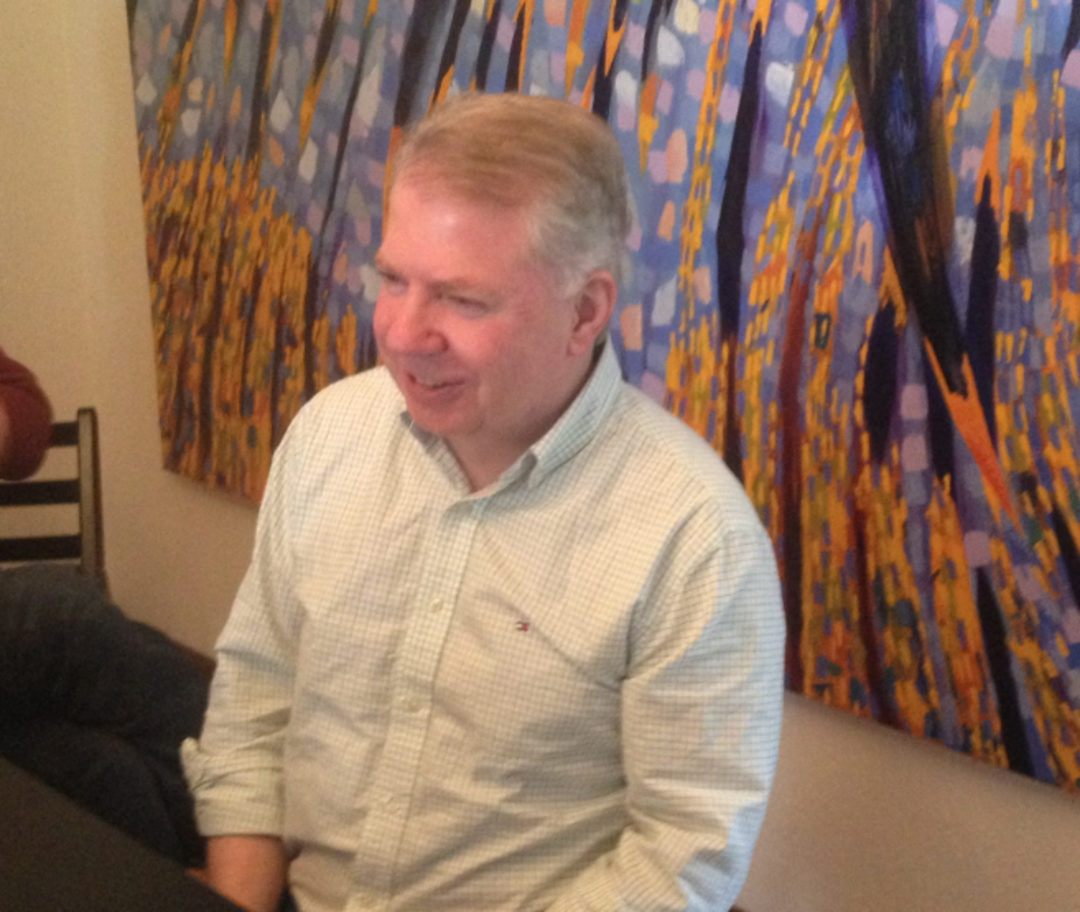
PubliCola: So what should we be asking and what are the answers you’d like to hear?
Murray: I think that the city is changing. I think the type of people who have moved here actually want a city that's more urban. They want a city that’s more dense. The type of people that are moving here to work at Amazon and the South Lake Union biotech companies—these aren't the people who are screaming, don't change things. These are the people who are actually writing and emailing and saying, why can’t we have more [density]?
PubliCola: Speaking of growth, what do you think of microhousing, or "aPodments"?
Murray: I think it's a great idea. I think they could work in many parts of the city. I think we need to be careful that it's not some kind of shoddy developer thing, or someone getting around growth rules or other things like that. I think we need to make some strategic decisions about where those developments, whether they’re slim houses or smaller apartments, happen. I don’t think we need a moratorium [on aPodments] to do that, though.
This is what we did in college or right out of college—we got old houses and four or five people would live together. So you can continue to destroy old housing stock or you can actually develop a model that people have been using forever.If you only hang out in the potholes, if you only hang out in the traffic circles, then you miss a big opportunity to move forward as a city.
PubliCola: The debate over the arena has brought up the issue, again, of whether we want to preserve the working waterfront and whether the arena threatens that goal. Where do you come down on that issue?
Murray: The stadium would not have been my priority, but obviously there's an opportunity there if it works and the public isn't left with the risk. So that’s one of the answers that needs to be tightened down pretty tightly—that if this thing proceeds that the risk is not with the taxpayers but with the private sector.
If it happens, I'm not going to try and undo it—as I said, there's an opportunity there. But again, it's going to be an issue of managing growth; it’s going to be an issue of how we get the transit that we need.
PubliCola: How did you first get politicized? Was it during the gay rights movement, or when Cal Anderson got elected?
Murray: No, not at all. I've been obsessed with politics forever. We should find some of my grade school teachers for you to talk to. The things I'm interested in today are exactly the things I was interested in then. I was obsessed with politics. I was sixth grade class president, then student body president of my high school—
PubliCola: What was your platform?
Murray: I can't remember—"I'm not a jock"? There are kids who grew up with me who will tell you, this is exactly what Ed said he's going to do.
The other strain of that is that when I was five, and JFK was running for president, and through those next few years leading up to the assassination, that meant so much to my family—my grandparents all being Irish Catholic immigrants, and the sense of second class citizenship that they all felt. It gave them a sense of affirmation that they were really, fully Americans.
When I first came out, I didn't do politics. I thought, you can't be gay and do politics. It was 1980, and there wasn't anybody.
And then I had been involved through college in various Democratic Party activist things, and then when Cal [Anderson] went for the appointment [as 43rd District state representative], in '87, and got it, it was like the bookend of the JFK experience for my family. [It showed me that] someone like me can actually be in politics.
And of course the reality of what was happening in my life, to my friends and the people I knew, was that by the time I was 40, most of the people I hung around with were dead [of HIV/AIDS]. And that politically motivated a whole generation of us. And then, you know, Cal worked the civil rights bill. He lost the bill by a vote. Then he got ill and he died.
I probably was one of the least prepared candidates to run for public office, because we didn't think he was going to die then, or so suddenly, and I hadn't done any of the things candidates do—you know, prep yourself, think through your issues—I just ran and was tagged as the gay candidate and then proved myself to be the transportation candidate.
PubliCola: This is a famously secular city. How does your Catholicism fit into your politics?
Murray: I go to church most Sundays, and I usually take a retreat in a Benedictine monastery every few years.
I don't think the last few popes or the archbishop would consider me a hard-core Catholic. I've actually kind of been waiting for the other shoe to drop. But I also can't walk away from something that I find to be a rich spiritual tradition that has a progressive side to it, that has created people like Dorothy Day and the Catholic Worker movement, Those are very influential things in my life, but I always have one foot in the door and one foot out the door. I never know if I'm going to stay or if I'm out.
PubliCola: What do you think of the new pope?
Murray: I don't know this guy. All I know is the choice of the name of someone [St. Francis of Assisi] who was committed to radical poverty and had a real statement against materialism, somebody who is one of the few Christians you can find in medieval history who actually reached out to Muslims, and somebody who symbolized rebuilding a church that was falling down—and this church is falling down. So the name makes me hopeful.
PubliCola: One of your opponents, Tim Burgess, did consulting work for the anti-gay, anti-choice group Concerned Women of America. [Burgess says his views have evolved over time, and says he ultimately convinced his business partner to resign the CWA contract]. Are you going to make that an issue in the campaign?
Murray: Since the day I came out, I have been in open opposition to my church by my very life, and over the last 18 years I have fought for things that my church has fought against. So if people want someone who was fighting the fight on women's issues and on gay and lesbian issues 18 years ago, then I'm their candidate.
I accept Tim's change of heart, or change of mind. I would just say, do you want the person who's had a recent change of heart or change of mind, or do you want the guy who's actually been there for 18 years in the trenches doing the work on those very issues?
PubliCola: Education is obviously a huge issue in the city right now, and it seems like you've recently embraced it as one of your issues. What do you think of the education reform movement, and things like charters and teacher accountability?
Murray: I oppose the charter schools bill. Regrettably, in Olympia, education reform has turned into a war on teachers. And I don't know if it's just reforming the system or changing the system to meet the needs of a changing workforce. But I don't think you do that against the teachers. I think you do that with the teachers. And there's no area right now in state government where there's more infighting and division going on than the groups involved in education and the reform movement.
PubliCola: What can you do as mayor to improve the schools?
Murray: I don't think a city can succeed unless it has a successful K-12 school system. But I also realize I'm not the school board and that the city doesn't control the schools. I'm not going to propose the Mayor Murray plan for taking over the school district. But I do think that if I'm the next mayor I would engage a conversation in the city with the school district, with our community colleges, with our universities, particularly their schools of education, and look at what kind of school district we want for this city that attracts kids who are now in private schools back into the public school system. How do we increase graduation rates, how do we reward the best and brightest teachers, how do we develop models of how an urban school system can succeed?
PubliCola: Some people would say, "Ed Murray really screwed up this session. He was the majority leader of the senate, and Rodney Tom [D-48, the nominally Democratic head of the Republican-dominated Majority Coalition Caucus that controlled the senate this session] pulled the carpet out from under him and let the Republicans take over. How do you respond?
Murray: I don't think my constituents view it as, Ed Murray screwed up. I think they view it exactly for what it is. Rodney Tom, who for years now has not been happy as a Democrat [Tom used to be a Republican], has been very vocal about that. He threw [former senate majority leader] Lisa Brown [D-10] under the bus on a budget that she let him write. So it's not like this is a surprise. I think the surprise is that it didn't happen earlier.
My response is that we've been mostly successful at messaging. which is one of the things the minority does, and stopping some of the things they wanted to do, like their attack on middle-class programs. They wanted to kill the [Guaranteed Education Tuition] program, and GET's going to survive. A bunch of education bills that were a direct attack on our public school system either got better or they died. Most of the workers' comp bills died. So I think we've been effective in the minority.
PubliCola: As someone who's never served in city office before, what's your vision for Seattle?
Murray: I want a progressive city that is not involved in petty divisions on issues where people mostly are on the same side. I think we've become about small things and not big things. You've always got to take care of the small things—basics do matter, because when infrastructure fails, it’s the poor who suffer most—but if you only hang out in the potholes, if you only hang out in the traffic circles, then you miss a big opportunity to move forward as a city—about how you manage growth, about how you create new transit, about how you build new relationships with your regional neighbors.
Instead, what often happens is a city that comes to Olympia fighting amongst itself for what it wants, not a city that's viewed as united. My colleagues can be pretty anti-Seattle, but my colleagues believe that people from Seattle are pretty down on the state of Washington. We want them to accept how progressive we are on issues like marriage equality, but they sure would like some acceptance from us about why they think some of the ways that they think—given where they live, given the reality of their parts of the state, which are really suffering economically.
I want to challenge the city to think bigger than petty little beefs about my version of transit versus your version of transit, my version of how we what how we want to end homelessness versus your version of how we want to end homelessness. I heard the mayor on the radio recently slapping down the council over some aspect of a plan to end homelessness. and it was like he was the savior of homeless people and they were against homeless people. That's just got to stop. Maybe one [strategy]'s more effective than the other, but to question the commitment of the council towards the homeless in the city—it's a game that is being played throughout the city among all sorts of groups and at all sorts of levels, and I think we've got to be bigger than that.

